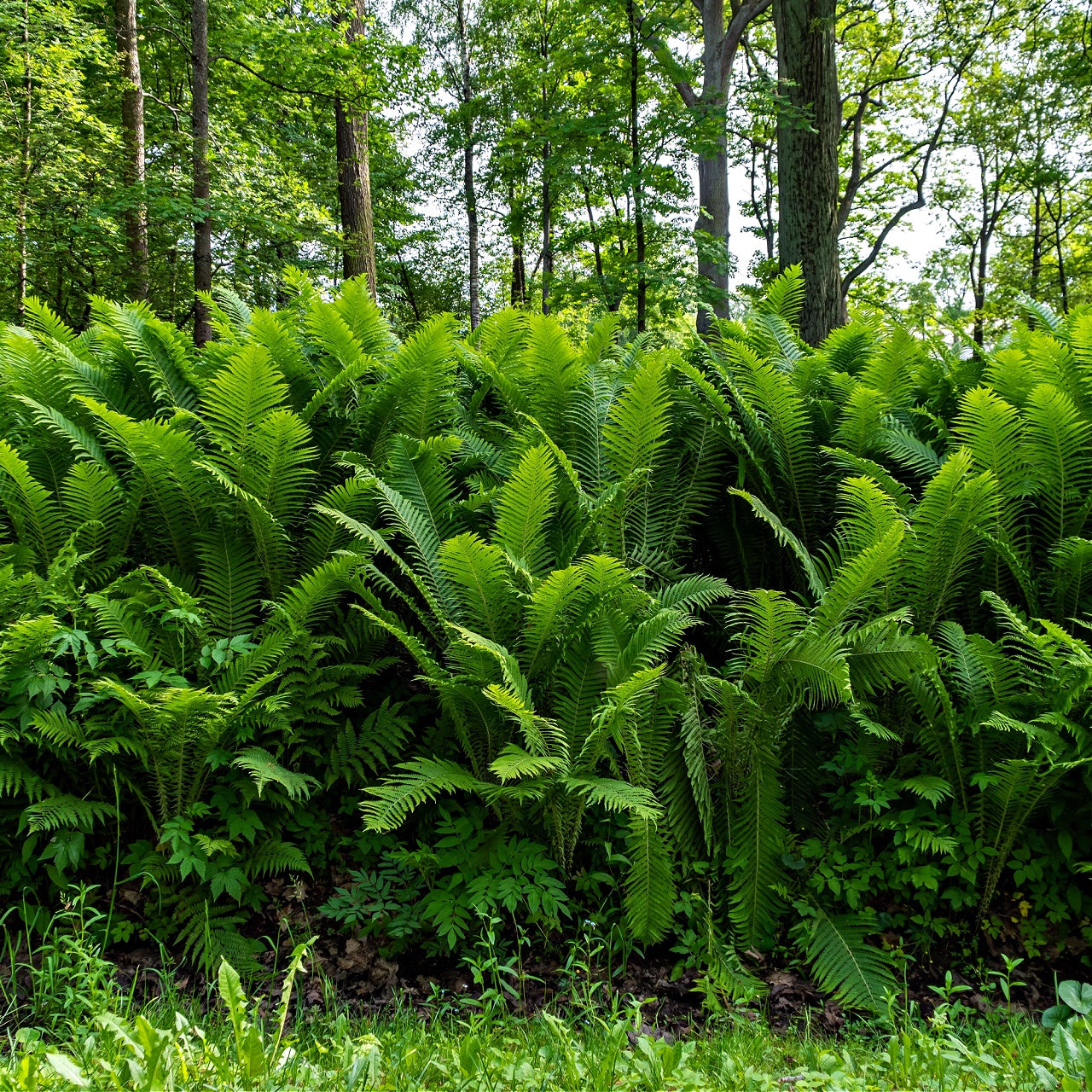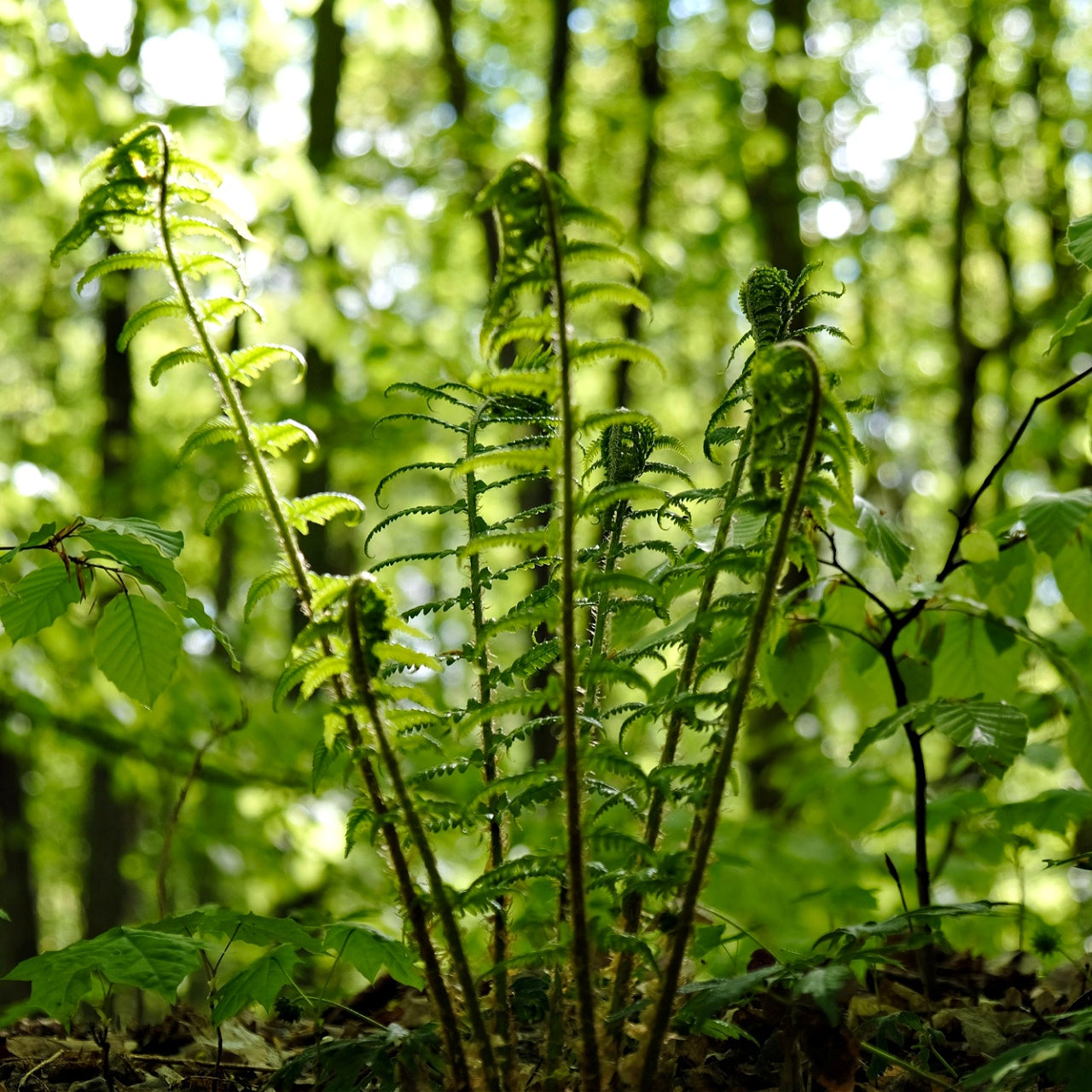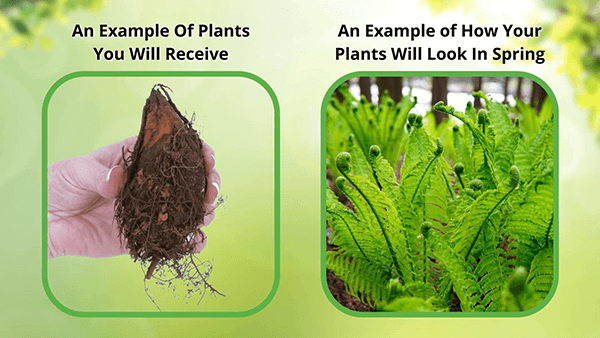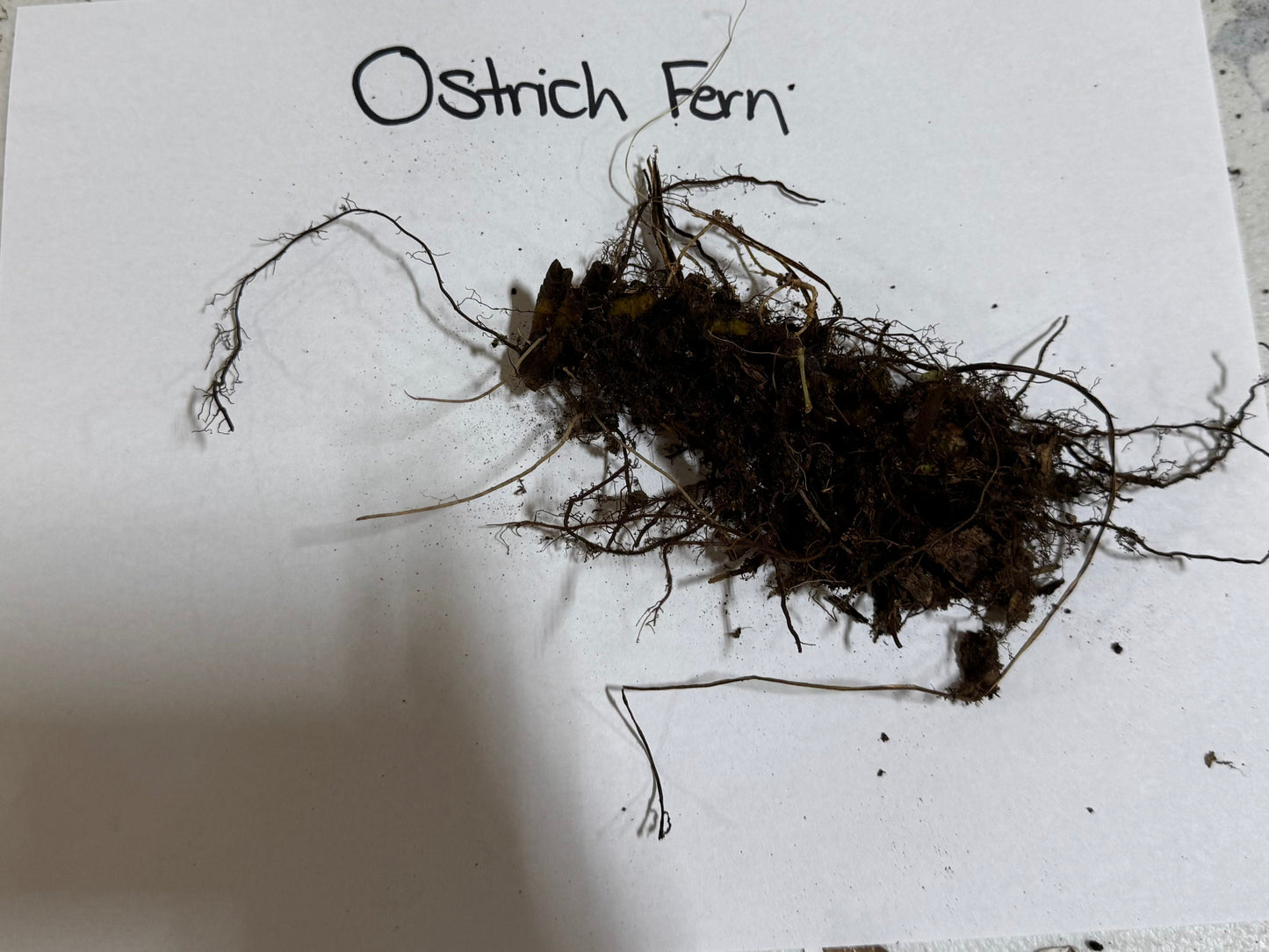



Removes & Absorbs Toxins
Improves Air Quality
Low maintenance & easy to grow
Buy Ostrich Ferns Online
The Ostrich Fern (Matteuccia struthiopteris) is a native perennial fern admired for its tall, sweeping fronds that resemble ostrich plumes. Mature plants reach 3-6 feet in height, bringing bold texture and a tropical feel to shaded areas while remaining perfectly cold-hardy for North American gardens.
This hardy fern is a favorite for woodland gardens, shaded borders, and erosion control because of its dense root system. The roots stabilize soil, prevent nutrient loss, and create a thriving ecosystem for surrounding plants and wildlife. In early spring, its distinctive curled fiddleheads emerge, adding ornamental interest and serving as a food source for foraging animals.
Key Benefits of Ostrich Ferns
-
Striking presence - Tall, arching green fronds add dramatic beauty
-
Native & cold-hardy - Grows reliably in USDA Zones 3-7
-
Soil stabilizer - Helps control erosion on slopes and streambanks
-
Wildlife habitat - Provides cover for insects, amphibians, and birds
-
Air-purifying - Naturally absorbs airborne toxins, improving air quality
-
Low-maintenance - Thrives without fertilizers, pesticides, or herbicides
Growing Information
| Attribute | Details |
|---|---|
| Botanical Name | Matteuccia struthiopteris |
| Plant Type | Deciduous perennial fern |
| Mature Height | 3-6 feet |
| Spread | 3-5 feet |
| Hardiness Zones | 3-7 |
| Light | Partial to full shade |
| Soil Needs | Moist, fertile, well-drained |
| Watering | Moderate to high, prefers consistent moisture |
| Growth Habit | Spreading clumps via rhizomes |
Pro Tip: Plant in groups or mass plantings for a natural, lush woodland effect. Pair with hostas, trilliums, or other shade perennials for layered interest.
Ideal Landscape Uses
-
Woodland & shade gardens
-
Naturalized plantings & ground cover
-
Pond edges & streambanks
-
Borders and shaded pathways
-
Erosion control on slopes
Ecological & Environmental Value
These Ferns do more than beautify landscapes. They act as bio-indicators of healthy ecosystems, providing habitat, shelter, and food sources for wildlife while enhancing soil fertility. Their rhizome network prevents erosion, making them invaluable for sustainable and eco-friendly gardens.
FAQ - Ostrich Ferns
Q: How tall do Ostrich Ferns get?A: Typically between 3-6 feet tall, depending on soil moisture and growing conditions.
Q: Do Ostrich Ferns spread quickly?A: They expand slowly by rhizomes, forming attractive colonies over time without being invasive.
Q: Are Ostrich Ferns evergreen?A: No, they are deciduous. Fronds die back in winter but return vigorously in spring.
Q: What kind of soil do they prefer?A: Moist, fertile, well-drained soil is ideal. They thrive in shaded, damp locations.
Q: Do they need fertilizer?A: No, they are naturally low-maintenance and thrive without added fertilizer or chemicals.
Q: Are they good for wildlife gardens?A: Yes - they provide cover for insects, birds, and amphibians, while spring fiddleheads feed certain wildlife.
This Fern is a favorite for shaded spots. The full name is Matteuccia struthiopteris, commonly used, and it's known for its height and elegant, fertile fronds. It's great for groundcover because it spreads readily to form dense patches and dense colonies. It requires rich soil and prefers moist soil conditions to really thrive. The Ostrich Fern is a resilient and low-maintenance perennial for woodland gardens.
This Is How Your Plants Will Look upon Delivery
Shipping date depends on the date displayed and chosen when you order from the product's page.
We do not offer warranties on products after 5 days past receiving your plants.
Our Blogs
By signing up, you agree with our privacy policy.






